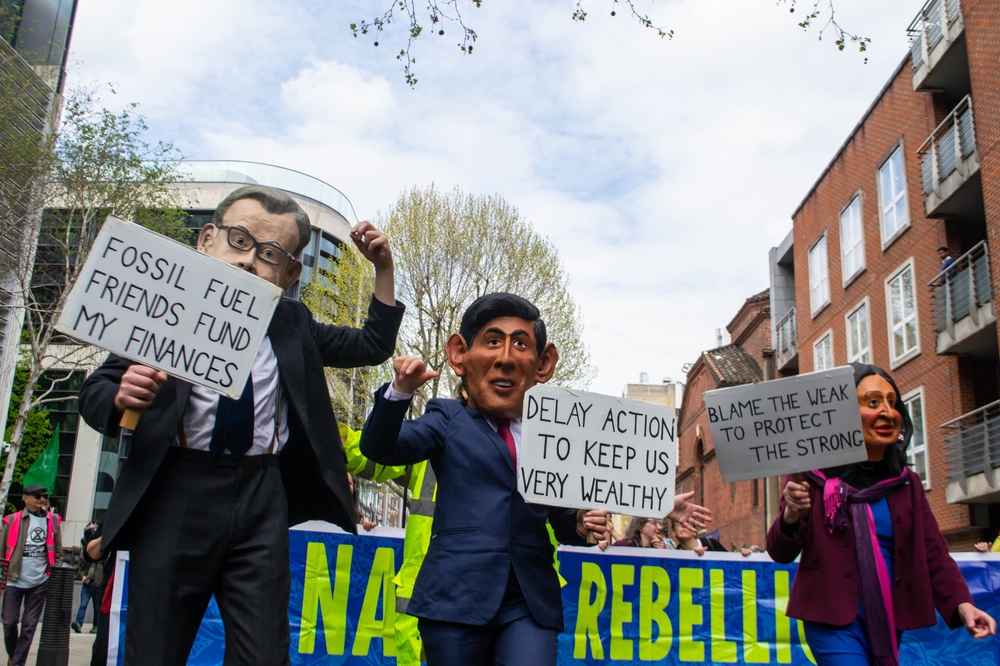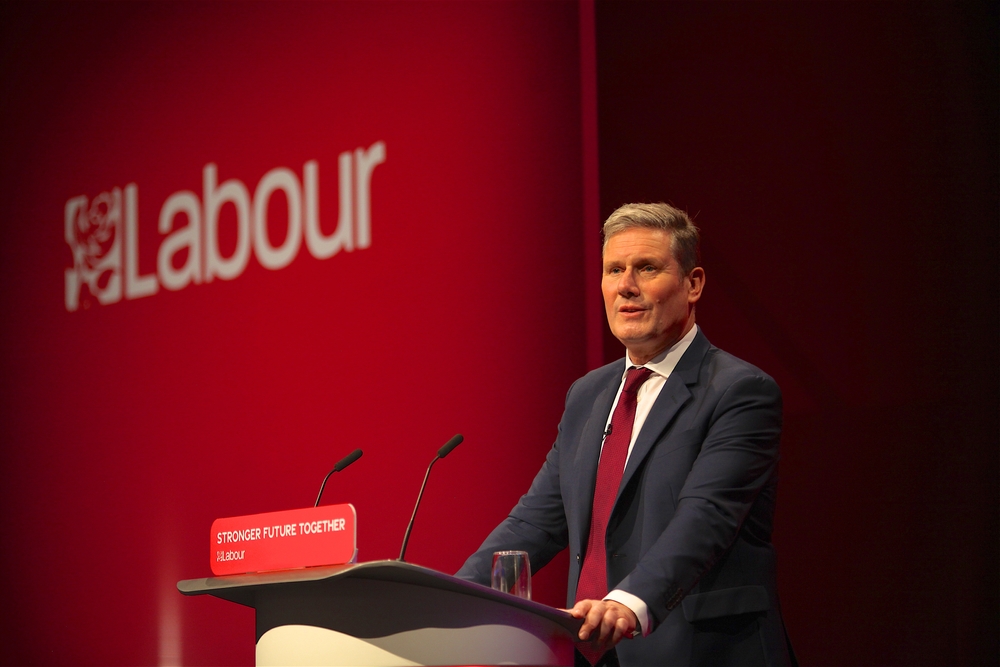A very British action:
In August, Greenpeace activists casually took to Rishi Sunak’s mansion, draping the listed manor house with a black fabric and posing with a sign stating ‘Rishi Sunak – Oil Profits or Our Future?’. In other words, a relatively tame action, carried out by tame people. They even had the decency to make sure that Mr Sunak and his family were absent, and knocked the front door declaring ‘this is a peaceful protest’ just in case. How British.
But, as with most climate actions in the UK, what was most striking was the reaction to it and what it says about the state of British society. Almost all coverage by the media was negative, emphasising the security ramifications and how the public (whatever that is) has grown tired of “stupid stunts”, as claimed by the Deputy Prime Minister, Oliver Dowden.
Incredibly, even coverage in ‘progressive media’, such as The Guardian, omitted what prompted the protest – namely, Sunak’s granting of some 100 oil and gas licenses in the North Sea. Something the Labour Party has stated that it won’t reverse.
Instead, we were met with a cacophony of faux moralising – the usual diatribes referencing crossed lines and middle-class sensibilities. In this context, the old adage ‘an Englishman’s home is his castle’ was invoked in order to capitalise upon bourgeois paranoia. After all, perhaps climate activists will be taking to your home next for, well, some reason.
One didn’t have to wander far into the recesses of The Mail Online’s comments section to find ample illustrations of these fears…
‘That’s private property and whatever the cause, it isn’t acceptable! All involved should be prosecuted’ – Peregrine Grey
‘I totally get these activists and what they stand for but rather than preach what others should do or should do how about they actually get involved’ – TheOracle
‘Completely unacceptable behaviour’ – Just Saying
Property is sacrosanct
The question has to asked, then, ‘how does a concern for private property trump concern for a habitable planet?’ The answer is simple. Whilst explicit climate denial has become increasingly socially unacceptable, it remains a large and ever present force within society – as the true nature of the unfolding crisis is ignored and petty, inconsequential causes are championed to the point of exhaustion.
It takes considerable pressure and manipulation to cause tens of millions of people to overlook their own, basic needs and to develop a passion for the wellbeing of their own oppressors. Notably, on the same day as the protest, it was announced that the Prime Minister was taking a holiday in California – clocking up air miles in order to celebrate his ravaging of the North Sea and his condemnation of millions, if not billions, to abject suffering.
In the UK, the weaponisation of respectability and exploitation of ‘commonsense’ morality has proven to be a key tactic of the establishment. Owing to our class system, and immense inequalities in terms of wealth, it’s a particularly effective tool.
Centuries of press conditioning has created a population that’s psychologically dependent on authority figures, whether it be a sovereign or a paternalistic Prime Minister. Sunak is, after all, a billionaire so far removed from the overwhelming majority of the human race that he, and his class, might as well be a separate species. Coupled with social atomisation and ever present judgement, the result of all this is a paralysed public desperate to avoid scrutiny and to secure social acceptance. Engaging in a climate protest, regardless of its nature, will inevitably engender the former and compromise the latter.
The wealthy can hide, the rest of us cannot
Notably, plans submitted to North Yorkshire Council have since revealed that Sunak intends to construct a 165ft (50m)-long fence around his mansion, specifically designed to prevent ‘incursion’. Like the rest of his class, he can afford to hide himself away from reality, to protect himself from the coming tempest – the rest of us cannot.
Unfortunately, inside sources close to the Prime Minister now suggest that he intends to ‘double down’ on an ‘anti-green’ agenda. In addition to making it easier to grant fossil fuel licenses (apparently, it’s not easy enough), he intends to make it harder for local authorities to address air pollution through reduced speed limits. If anything, then, this suggests that Greenpeace’s methods simply don’t go far enough.
The reality is that if we can’t drape a man’s mansion with a piece of fabric to raise awareness of the climate crisis, we can’t do anything. Rishi Sunak, by his actions, is condemning our planet (and therefore its inhabitants) to the breakdown of the biosphere, the climate, and the environment. Whether he knows it or not (and one must assume that a head of state has access to cursory scientific knowledge) he, and the political establishment at large, is trying to kill us.
Let’s be frank, he should count himself fortunate that self-defence, according to the British, consists of such a tame response. Historically, other heads of states, in less polite countries, haven’t been quite so fortunate.





